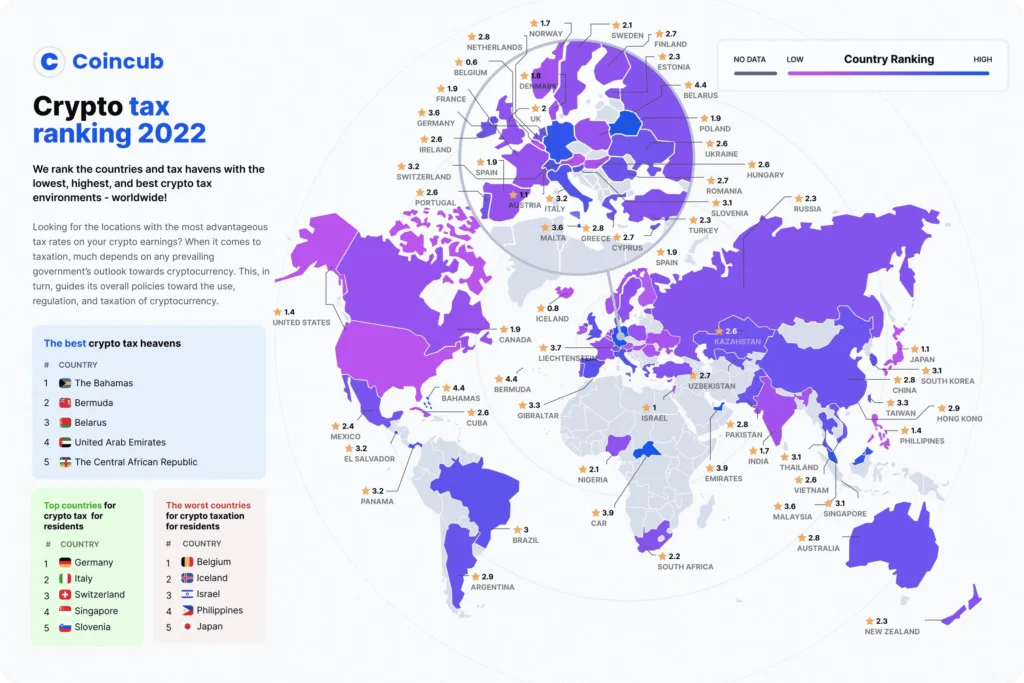
The Regulatory Landscape in Europe: Understanding the Framework
Europe, like any other region, has a complex regulatory landscape that businesses need to navigate. There are numerous regulations and policies in place that aim to ensure fair competition, consumer protection, and environmental sustainability. Understanding the framework of these regulations is crucial for companies operating within the European market.
In order to comply with European regulations, businesses must familiarize themselves with the various directives and standards set by regulatory bodies. This can be a daunting task, as the regulatory framework is constantly evolving, and new regulations are regularly introduced. However, staying informed and keeping up with the latest developments is essential to avoid costly non-compliance fines and penalties. It is important for businesses to establish a clear compliance strategy and ensure that all relevant departments are well-versed in the regulatory requirements specific to their industry. By doing so, companies can ensure they are operating within the boundaries of the European regulatory framework and contribute to creating a level playing field for all businesses.
Key Objectives of European Regulations: Protecting Consumers and Promoting Fair Competition
Protecting consumers and promoting fair competition are two key objectives of European regulations. These objectives aim to create a level playing field for businesses operating in the European market and to ensure that consumers are not exposed to unfair practices or harmful products.
The primary goal of consumer protection regulations is to safeguard the rights and interests of consumers. This includes ensuring that products and services meet certain quality and safety standards, as well as preventing misleading advertising or unfair contract terms. By establishing these regulations, European authorities aim to build trust and confidence among consumers, allowing them to make informed choices and have peace of mind when purchasing goods or using services.
Another important objective is promoting fair competition. European regulations aim to create a competitive marketplace where businesses can thrive and innovate. This involves preventing anti-competitive practices, such as price fixing or abuse of dominant market positions. By fostering fair competition, European regulations not only protect consumers from monopolistic practices but also encourage businesses to strive for excellence, leading to better products and services for everyone.
In summary, European regulations prioritize protecting consumers and promoting fair competition. These objectives ensure that consumers have access to safe and reliable products, while businesses operate in a fair and competitive marketplace. By striking a balance between these objectives, European regulations aim to create a sustainable and thriving economy that benefits both consumers and businesses alike.
European Union Regulations: Harmonizing Standards across Member States
Harmonizing standards across member states is a key objective of European Union regulations. The EU strives to create a level playing field for businesses operating across borders, ensuring fair competition and market consistency. By implementing common rules and guidelines, the EU aims to eliminate trade barriers and facilitate the free movement of goods, services, and capital within the single market.
To achieve this, the European Union has established various regulatory frameworks that govern different sectors and industries. These regulations cover a wide range of areas, including product safety, environmental protection, data privacy, consumer rights, and financial services. By setting common standards, the EU ensures that businesses can operate in multiple member states without having to comply with different or conflicting regulations. This not only saves them time and resources but also creates a cohesive and predictable regulatory environment for both businesses and consumers alike.
Understanding the Role of Regulatory Agencies in Europe
Regulatory agencies in Europe play a crucial role in ensuring compliance with various regulations and standards across different industries. These agencies act as watchdogs, keeping a close eye on businesses and their practices to protect consumers and ensure fair competition. They are like the police of the business world, making sure that everyone plays by the rules and nobody gets away with cutting corners.
One major objective of regulatory agencies is to enforce regulations that promote consumer safety. Whether it’s ensuring the quality and safety of products or monitoring the marketing and advertising practices of companies, these agencies work tirelessly to safeguard the interests of consumers. They also play a key role in maintaining fair competition by preventing monopolies and unfair market practices. In a nutshell, regulatory agencies act as the referees, keeping the game fair and ensuring that businesses operate in a way that benefits both consumers and the overall market. So next time you see a product with a safety certification or a company facing hefty fines for violating regulations, remember that it’s all thanks to the watchful eyes of these regulatory agencies.
Navigating the Complexities of Compliance: Challenges and Solutions
Navigating the complexities of compliance in today’s ever-changing regulatory landscape can be a daunting task for businesses of all sizes. From understanding the intricacies of European Union regulations to ensuring product safety and environmental sustainability, there are numerous challenges that companies must face. One major challenge is the sheer volume and complexity of regulations that need to be adhered to. With constantly evolving standards and guidelines, it can be overwhelming for businesses to keep up and ensure full compliance. This challenge is further exacerbated by the fact that regulations can vary across different industries and member states, adding an additional layer of complexity to the compliance process.
However, despite these challenges, there are solutions available to help companies navigate the intricacies of compliance. One key solution is investing in technology and embracing digitalization. By leveraging innovative tools and software, businesses can streamline their compliance processes, automate repetitive tasks, and minimize the risk of human error. Additionally, technology can provide real-time updates on regulatory changes, allowing companies to stay ahead of the curve and adapt their compliance strategies accordingly. Moreover, seeking the guidance of regulatory experts and consulting firms can also provide valuable support in understanding and interpreting complex regulations, ensuring that businesses have a comprehensive understanding of their compliance obligations. By combining these solutions and staying proactive, businesses can effectively navigate the complexities of compliance and achieve enhanced regulatory compliance in Europe.
The Impact of European Regulations on Business Operations
European regulations have a significant impact on business operations across the continent. These regulations aim to ensure fair competition and protect the rights and safety of consumers. For businesses, compliance with these regulations is not only a legal requirement but also a necessity for establishing trust and credibility with customers.
One of the key impacts of European regulations on business operations is the need for companies to adapt their processes and practices to meet the prescribed standards. This may involve investing in new technology or equipment, implementing stricter quality control measures, or even reorganizing the entire production chain. While this may seem daunting at first, it presents an opportunity for businesses to innovate and improve their operations in line with modern requirements. It also helps to level the playing field by ensuring that all businesses adhere to the same rules, promoting fair competition and creating a more sustainable market environment. So, businesses operating in Europe must stay up-to-date with the latest regulations and invest in the necessary changes to ensure compliance and thrive in the market. After all, in the highly regulated European landscape, compliance is not just an obligation, but also a strategic advantage.
Ensuring Product Safety and Environmental Sustainability: European Standards and Regulations
Product safety and environmental sustainability are two paramount concerns in Europe, and the region has developed robust standards and regulations to address them. European standards aim to ensure that products sold in the market are safe for consumers and do not pose any risks to their well-being. These standards cover a wide range of products, from toys and electrical appliances to cosmetics and agricultural goods, among others.
Moreover, when it comes to environmental sustainability, European regulations play a crucial role in promoting practices that minimize the impact on the planet. These regulations require businesses to comply with strict guidelines to reduce waste, emissions, and the use of hazardous substances. Businesses are also encouraged to adopt eco-friendly practices such as recycling, energy efficiency, and the use of renewable resources.
It is worth noting that complying with these European standards and regulations can be challenging for businesses, especially smaller ones. The complex nature of the regulations, coupled with the need to constantly adapt to evolving requirements, can put substantial pressure on companies. However, there are solutions available to help businesses navigate these complexities and ensure compliance. Many companies now turn to specialized consulting firms that provide expertise in regulatory matters, offering guidance on compliance strategies and assisting in the implementation of necessary measures.
In conclusion, European standards and regulations play a critical part in ensuring product safety and environmental sustainability. While complying with these regulations can be challenging, businesses have access to support and solutions to help them meet the requirements. By adhering to these standards, companies not only protect consumers and the environment, but they also contribute to a fair and sustainable marketplace.
The Role of Technology in Regulatory Compliance: Innovations and Digitalization
In today’s fast-paced world, technology plays a crucial role in ensuring regulatory compliance. Cutting-edge innovations and the widespread adoption of digitalization have revolutionized the way businesses operate and navigate complex regulations. From automated compliance monitoring systems to cloud-based record-keeping tools, technology offers a plethora of solutions to assist companies in meeting their regulatory obligations.
One of the main advantages of leveraging technology in regulatory compliance is its ability to streamline processes and increase efficiency. By utilizing sophisticated software and digital tools, businesses can automate tedious tasks, such as data collection and analysis, thereby saving time and reducing the risk of errors. Moreover, with the help of advanced algorithms, technology can identify potential compliance issues and generate real-time alerts to prompt corrective action. This not only helps companies stay on top of changing regulations but also mitigates the possibility of penalties or legal repercussions. In short, technology empowers businesses to proactively manage their compliance obligations and ensure they stay in line with the ever-evolving regulatory landscape.


